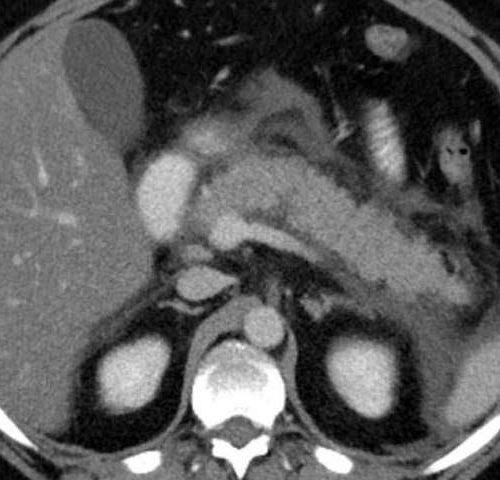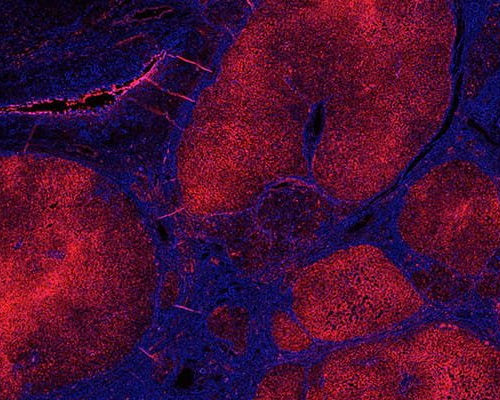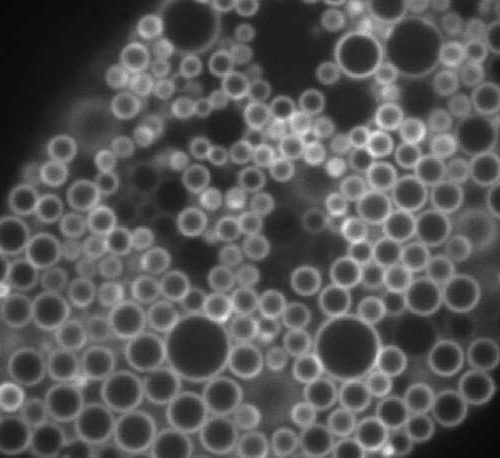by Joe Dangor, Mayo Clinic A study by researchers at Mayo Clinic in Arizona published in the the Journal of Clinical Investigation has found that obesity is not only implicated in chronic diseases such as diabetes, but also in sudden-onset diseases such as pancreatitis. “In our study, we were able to demonstrate that fat within...
Category: <span>Metabolic</span>
Insulin signaling suppressed by decoys
C. elegans study from the lab of Matthew Gill, PhD, presents new direction for research on type 2 diabetes, insulin resistance, longevity and aging SCRIPPS RESEARCH INSTITUTE JUPITER, FL–FEB. 25, 2020–In a discovery that may further the understanding of diabetes and human longevity, scientists at Scripps Research have found a new biological mechanism of insulin...
New treatments for diabetes may lie in metabolic products of intestinal flora
by Cynthia Lee, McGill University In a study published in the journal Cell Reports, researchers at McGill University, Kyoto University and INSERM/University of Paris show that an organic compound produced by the intestinal flora, the metabolite 4-Cresol, exhibits protective effects against type 1 and type 2 diabetes by stimulating the proliferation and function of insulin-producing beta...
Study: Two Enzymes Control Liver Damage in NASH
As much as 12 percent of adults in the United States are living with nonalcoholic steatohepatitis (NASH), an aggressive condition that can lead to cirrhosis or liver cancer. After identifying a molecular pathway that allows NASH to progress into liver cell death, University of California San Diego School of Medicine researchers were able to halt...
Postmenopause vitamin D deficiency associated with disc degeneration and lower back pain
by The North American Menopause Society Lumbar disc degeneration and resulting lower back pain become greater concerns with age and disproportionately affect women more than men, likely as a result of decreasing estrogen levels during menopause. A new study demonstrates that vitamin D deficiency, smoking, high body mass index (BMI), and osteoporosis are risk factors...
Fat droplets play surprise role in metabolism
by Howard Hughes Medical Institute In suspense novels, the most unassuming character sometimes turns out to be a mastermind, influencing events without attracting attention. That same storyline may be afoot in cells as well: an unglamorous fat-storing droplet appears to have a surprise role in controlling gene activity. The droplets prevent cells from activating genes...
Could sunlight combat metabolic syndrome?
A new study in mice concludes that light-sensitive proteins on fat cells can detect sunlight. It also finds that too little natural light can alter how fat cells behave and may increase the risk of metabolic syndrome. Sunlight may influence fat metabolism, according to a recent study. Throughout the evolution of life on Earth, much...
Could sunlight combat metabolic syndrome?
A new study in mice concludes that light-sensitive proteins on fat cells can detect sunlight. It also finds that too little natural light can alter how fat cells behave and may increase the risk of metabolic syndrome. Sunlight may influence fat metabolism, according to a recent study. Throughout the evolution of life on Earth, much...
‘Ancient’ cellular discovery key to new cancer therapies
Metabolic system may explain tumour growth in humans FLINDERS UNIVERSITY Australian researchers have uncovered a metabolic system which could lead to new strategies for therapeutic cancer treatment. A team at Flinders University led by Professor Janni Petersen and the St Vincent’s Institute of Medical Research have found a link between a metabolic system in a...
Drug increases brown fat activity in healthy women
A National Institutes of Health study found that chronic treatment with mirabegron, a drug approved to treat overactive bladder, activated brown fat in a small group of healthy women and had several other beneficial metabolic effects. Brown fat, or brown adipose tissue, is a form of fat that burns calories to generate heat. The research,...






